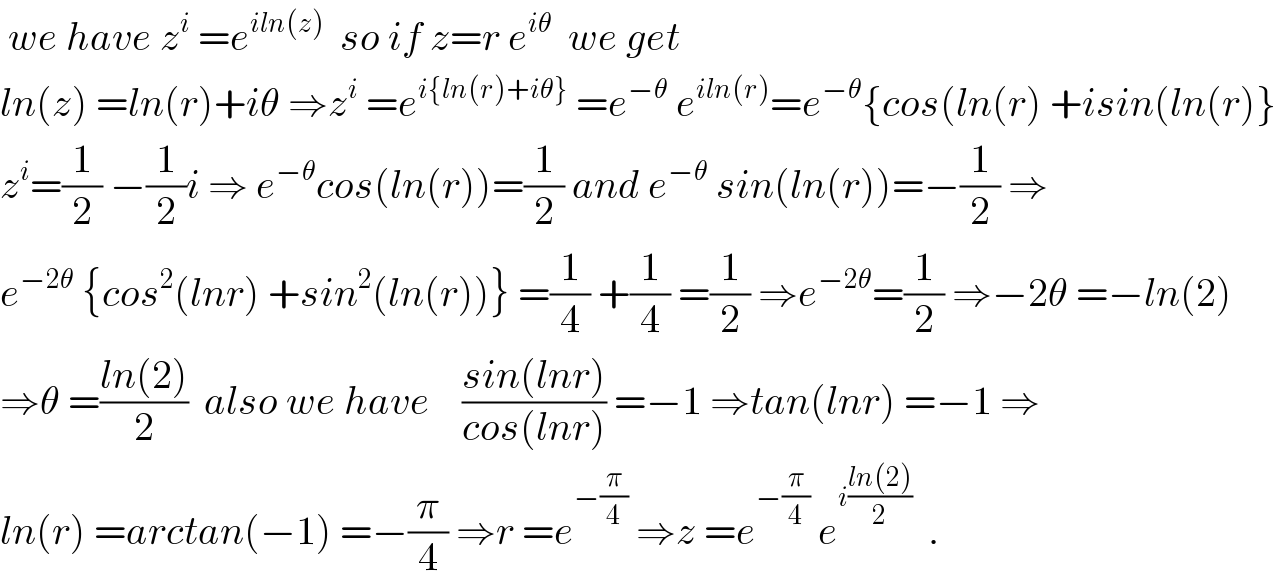
Question and Answers Forum
Question Number 60039 by MJS last updated on 17/May/19

Commented by maxmathsup by imad last updated on 18/May/19

Commented by maxmathsup by imad last updated on 18/May/19

Commented by maxmathsup by imad last updated on 19/May/19

Answered by tanmay last updated on 17/May/19
![(A+iB)^(P+iQ) =e^((P+iQ)Log(A+iB)) Log(A+iB) A=rcosθ B=rsinθ Log(re^(iθ) ) =Log_e (re^(i(2kπ+θ)) =log_e r+i(2kπ+θ) =(1/2)log_e (A^2 +B^2 )+i[2kπ+tan^(−1) ((B/A))] e^((P+iQ)[(1/2)log(A^2 +B^2 )+i{2kπ+tan^(−1) ((B/A))}]) e^p ×e^([{−Q(2kπ+tan^(−1) ((B/A))}+i(Q/2)log(A^2 +B^2 )]) e^P ×e^(−Q(2kπ+tan^(−1) ((B/A))) ×e^(i×(Q/2)log(A^2 +B^2 )) e^(P−Q(2kπ+tan^(−1) ((B/A))) ×[cos(((Qlog(A^2 +B^2 ))/2))+isin(((Qlog(A^2 +B^2 ))/2))] wait sir... now put P=0 and Q=1 e^(−(2kπ+tan^(−1) ((B/A)))) ×[cos(((log(A^2 +B^2 ))/2))+isin(((log(A^2 +B^2 )/2))] still[to go...](Q60047.png)
Commented by MJS last updated on 18/May/19

Answered by Smail last updated on 18/May/19

Commented by MJS last updated on 18/May/19

